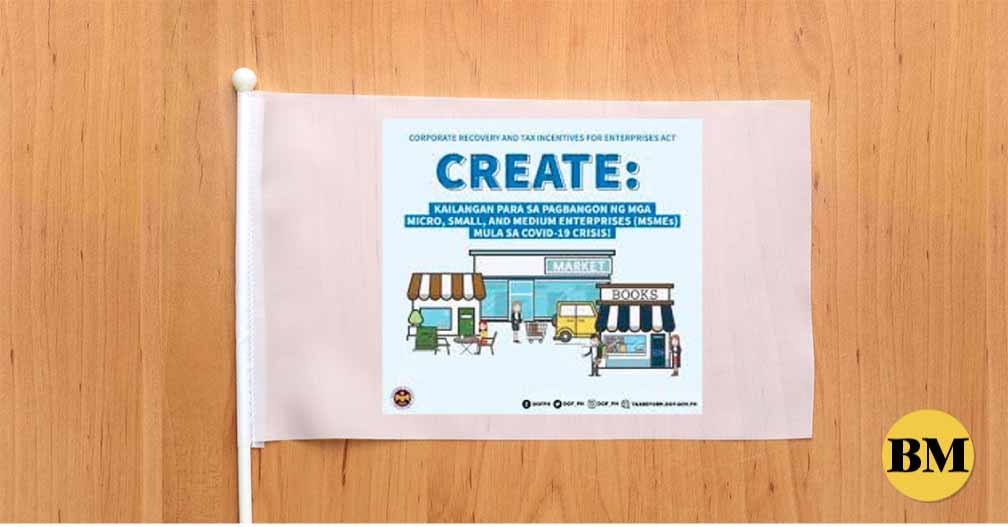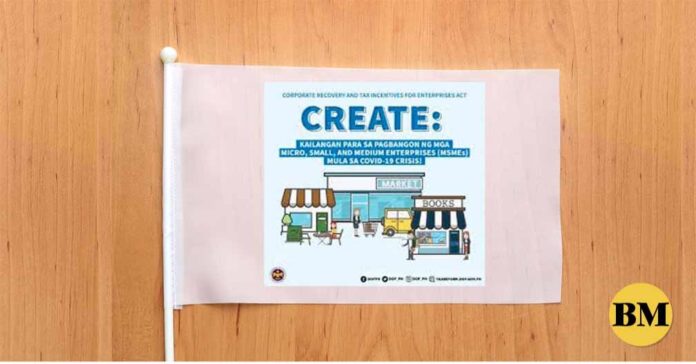
HOUSE Committee on Ways and Means Chairman Rep. Joey Sarte Salceda stood pat on the last-minute insertion of tax breaks for domestic oil refineries in the Corporate Recovery and Tax Incentives for Enterprises (CREATE) bill for a “fairer” petroleum industry environment.
Salceda issued a statement over the weekend explaining the inclusion of a provision that exempts local petroleum refineries from paying taxes and duties on crude oil imports as response to recent criticism by the Action for Economic Reform (AER).
Salceda argued that local refineries are at a disadvantage against direct importers as they have to pay value-added tax (VAT) twice, while both players are eligible for tax and non-tax incentives under free port zones.
“Direct importers do not create refining jobs in the Philippines. Refiners do. It’s easier to smuggle if you’re a direct importer, because there is no fuel marking at the free port zones where they usually have their terminals. It’s harder, if not impossible, to smuggle if you’re a refiner, because you are checked at the crude importation stage, and at the point of removal from the refinery,” he said.
“Under the old system, both direct importers and refiners could qualify for tax and non-tax incentives under our free port zones, even if only refining creates domestic value-added, invests in technology, and creates manufacturing jobs. This is obviously unfair,” he added.
Furthermore, Salceda said claiming of input VAT credits for domestic refiners is also a burden since “the money passes through tax administration” with refiners having “to wait for years to claim credits that at any time reaches P7 billion to P10 billion.”
“Direct importers do not have that problem. It’s unfair when any business has billions of its own money help up, while its competitors do not have to,” Salceda said. “As a result, it has become more attractive to import than to generate value-added and create jobs here,” he added.
Salceda said what they did in the CREATE bill was adopt the common practice in Singapore, Malaysia, India, Thailand and other neighboring countries which is only taxing petroleum once it is refined.
Economic sense
“I said no to any proposal from stakeholders and colleagues alike to give revenue-negative exemptions for the industry. There were proposals on property tax exemptions and withholding tax. I turned them all down. But I could not say no to proposals that make economic sense,” Salceda added.
Salceda noted that the crude oil refining industry contributes around 5 percent to 6 percent of the country’s total gross value added in the manufacturing sector.
“Shift demand to direct importation and we lose this value-added nearly entirely. I’ve heard various arguments and accusations against our position, but nobody has answered this question: can we afford to lose 5 percent to 6 percent of GVA during the year of our worst GDP performance?” he pointed out.
Salceda emphasized that the “fairer amendments” to CREATE on crude oil refining “will not hurt” the country’s revenues.
“In fact, we introduced a provision that disallows direct importers from availing of tax incentives under CREATE. This will help close the alleged smuggling loopholes in our free ports. We also empowered the Secretary of Finance to outright close any enterprise caught smuggling using our free ports and ecozones. These provisions will help, not hurt our revenues,” he said.
Salceda said he “strongly disagrees” with AER’s statement that the inclusion of the above-mentioned provisions were “an emotional response.”
“Ultimately, it is the President who will decide what happens next, now that CREATE is on his desk. That is why I sent him an economic analysis on the merits of these provisions, not an emotional appeal. I hope he decides fairly,” he said.
Last week, the AER said the last-minute insertion of the tax breaks for oil refineries by the congressional conference committee is seen to be a “futile policy” as local refineries are not economically viable.
Lamenting the manner of the provisions’ inclusion in the final version of the CREATE bill as “highly questionable,” AER recalled that these provisions were not included in either the Senate or the House versions of the bill.
The AER noted that the last remaining oil refinery in the Philippines, the Petron refinery in Bataan, has been suffering from weak margins and temporarily closed down in January, prompting Salceda to rue that if the Petron refinery were to close down, “our country would be exposed to a national security threat and become dependent on imports.”
Read full article on BusinessMirror

